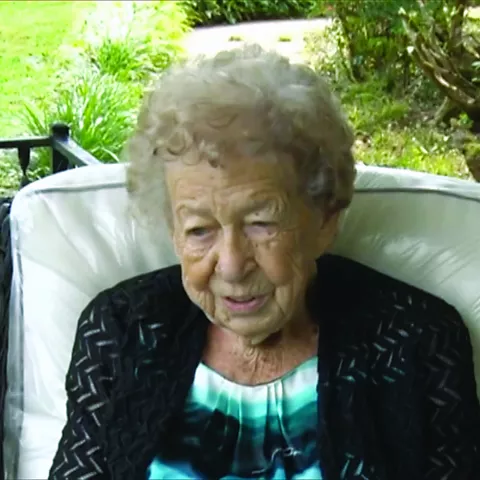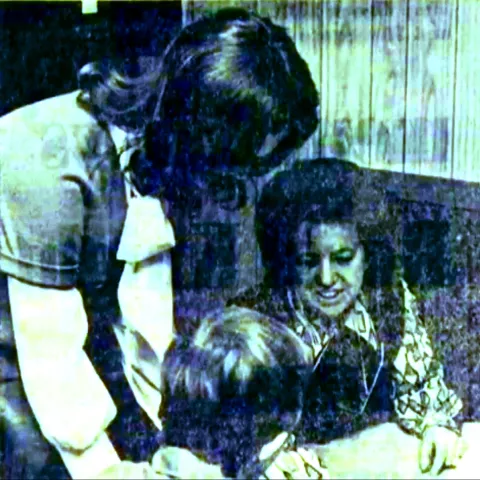Centenarian Annette Cothron’s legacy in special education began with words spoken by her husband, Harold, more than seven decades ago: “Annette can do it.” That simple assertion set into motion educational changes that, to this day, have made a meaningful and lasting impact on students with special needs and the families who love them. Not bad for a farm girl who was forced to drop out of high school when she married at the tender age of 16.

Cothron, who turned 100 in September, is a member of the Macon County Retired Teachers’ Association, in Tennessee, as well as the Tennessee Retired Teachers Association and NEA-Retired.
Her education may have been curtailed, but her love for learning was not. With two young daughters in tow—and the younger, Carolyn, with severe developmental challenges—Cothron still found time to pore over Shakespeare and other classics. Her self-guided education proved fortuitous when World War II sent many men to the battlefields of Europe. As women rushed to fill their high-paying factory jobs, a good number of schools were suddenly short on teachers.
“Annette can do it,” said Annette’s husband, who served on the Macon County Board of Education and was quick to volunteer his bright wife to take over a classroom.
As hard as that job was, it paled in comparison to her next assignment. She worked for six years as a “homebound instructor”—a teacher who visited the homes of students who, at the time, were considered too disabled to attend school in person. As Cothron puts it, “From daylight to dark, I was traveling from one home to another.” But just as the miles on her old jeep racked up, so, too, did her realization that these students deserved more.
That led to the next leg of her journey: fighting to fund a school for students with special needs. It took a lot of persuasion, but with time, persistence, and support from other educators, Annette achieved her goal. Then, when the school’s teacher resigned before even walking into the classroom, Annette once again stepped up to the challenge.
While all the “twists and turns”—as Cothron would say—were going on, Cothron became the first person in her county to get a General Equivalency Diploma and then went on to earn a bachelor’s and a master’s degree, as well a doctorate of education.

While earning her doctorate, Cothron faced a personal paradox. Though she had fought to create a school for students with special needs, she now realized those students would be better served by attending the “regular” school. Cothron had spent a lot of time persuading parents and community leaders to support the special needs school, and now she was asking them to trust her again. It was no small task, but with her usual perseverance, she succeeded.
In the early 1970s, Macon became the first county in the state of Tennessee to integrate special education students into the main classroom, with Cothron serving as the program’s supervisor for 13 years. “By being able to spend part of their day in the regular classroom with cooperative teachers, the students [with special needs] were able to learn to their full potential,” Cothron says. “Before, these children were so protected, … which was good, but they needed to experience life more fully.”
Read more member stories or submit the name of an educator you'd like to see featured.
